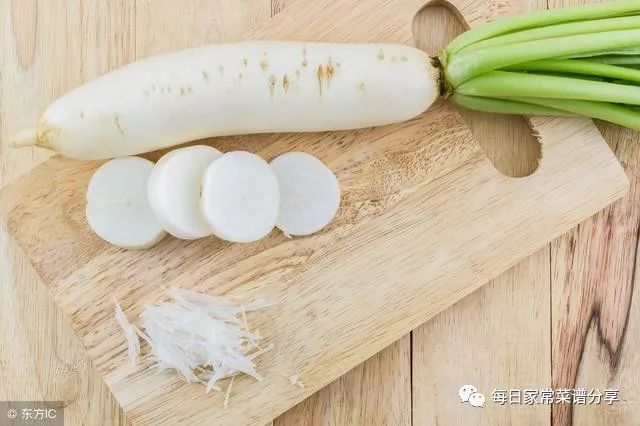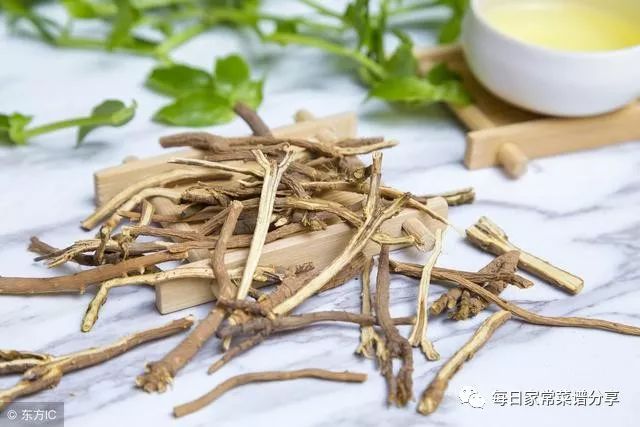It is well known that anger can harm the liver, and everyone has experienced bouts of anger. Over time, this can lead to liver qi stagnation (gan qi yu jie). Also known as liver depression (gan yu), liver qi stagnation is a common condition, particularly prevalent among women. Therefore, it is essential to understand how to regulate it. So, how can we manage liver qi stagnation?

Symptoms of Liver Qi Stagnation
1. Depression or irritability
This symptom is the most common, manifesting as low mood, frequent sighing, or irritability, which affects daily life and work.
2. Distension and pain in the areas along the liver meridian
The liver meridian runs through the lower abdomen, chest, throat, and top of the head. Liver qi stagnation can cause pain in the lower abdomen, breast tenderness, rib pain, and headaches.
3. Changes in the neck and throat
As the liver meridian passes through the throat, stagnation here can lead to a sensation of a foreign body in the throat, difficulty swallowing, or an inability to cough it out, a condition known in TCM as plum pit qi (mei he qi). If qi stagnation persists, it can further disrupt the normal flow of blood and body fluids, leading to phlegm and blood stasis in the neck, resulting in neck lumps.

What Are the Dangers of Liver Qi Stagnation in Women?
1. A woman’s menstrual cycle is closely related to the liver’s ability to regulate. If liver qi is not flowing smoothly, it can lead to short menstrual periods, light menstrual flow, intermenstrual bleeding, dizziness during menstruation, and insomnia during menstruation.
2. The depression and anxiety caused by liver qi stagnation often lead to headaches, irritability, emotional fluctuations, chest and rib distension, abdominal bloating, and endocrine disorders in women.
3. Liver stagnation can cause insomnia, characterized by difficulty falling asleep, frequent dreams, and being easily startled. This affects sleep quality, leading to poor nourishment of qi and blood, rough skin, and a dull complexion. Insomnia due to liver fire is often caused by anger harming the liver.
4. Changes in the breasts and menstrual disorders
In TCM, it is believed that “women rely on the liver for their constitution,” making them more susceptible to liver qi stagnation. In addition to the symptoms mentioned above, it can also manifest as breast tenderness, lumps, dysmenorrhea, or menstrual irregularities.

How to Regulate Liver Qi Stagnation
Medication Regulation
If liver qi stagnation persists for a long time, one can take some traditional Chinese patent medicines for regulation, such as Xiao Yao Wan (Free and Easy Wanderer Pill) or Jia Wei Xiao Yao Wan (Modified Free and Easy Wanderer Pill). If liver qi stagnation is chronic, it is advisable to seek medical treatment to prevent severe liver damage or other conditions affecting the liver.
Routine Regulation
Patients with liver qi stagnation should develop good habits. Sufficient sleep is essential for maintaining vitality, so it is beneficial to go to bed early and rise early.
Emotional Regulation
When the liver fails to regulate, qi stagnates, leading to emotional depression; prolonged stagnation can result in irritability. Therefore, patients with liver qi stagnation should actively manage their emotions. Maintaining a balanced state will gradually alleviate liver qi stagnation, potentially eliminating the need for medication over time.

What Foods Are Good for Liver Qi Stagnation?
Radish
Radish seeds, fresh roots, and leaves can all be used medicinally, having the effect of promoting qi and reducing accumulation. Radishes contain various trace elements that can induce the body to produce interferon, enhancing immunity.

Celery
Celery is cool in nature and has functions such as clearing heat, relieving irritability, promoting diuresis, reducing swelling, calming the liver, and cooling the blood to stop bleeding. It may help eliminate jaundice, edema, and excessive thirst.
Banana
Bananas, known as the “happy fruit,” are cool in nature and rich in vitamins and potassium. Potassium ions can enhance muscle strength and endurance, clear heat, moisten the intestines, detoxify, promote gastrointestinal motility, and have a calming effect.

What Medicines Are Good for Liver Qi Stagnation?
1. Xiao Yao Wan
Xiao Yao Wan is a commonly used traditional Chinese patent medicine for liver qi stagnation, primarily composed of Chai Hu (Bupleurum), Dang Gui (Angelica Sinensis), Bai Shao (White Peony), Bai Zhu (White Atractylodes), Fu Ling (Poria), Gan Cao (Licorice), Mu Dan Pi (Moutan Root), Zhi Zi (Gardenia), and Bo He (Peppermint). It has the effects of soothing the liver, clearing heat, strengthening the spleen, and nourishing blood, used for symptoms of liver qi stagnation and disharmony between the liver and spleen, such as rib distension and pain.

2. Chai Hu
Chai Hu Shu Gan San (Bupleurum Powder to Spread the Liver) is mainly composed of Chen Pi (Dried Tangerine Peel), Chai Hu (Bupleurum), Xiang Fu (Cyperus), Zhi Qiao (Bitter Orange), Chi Shao (Red Peony), and Gan Cao (Licorice). It has the effects of soothing the liver, regulating qi, and promoting blood circulation to relieve pain, primarily treating liver qi stagnation.

3. Shu Gan Wan
Shu Gan Wan (Liver Soothing Pill) is also a commonly used traditional Chinese patent medicine for treating liver qi stagnation, composed of Chuan Lian Zi (Sichuan Chinaberry), Yan Hu Suo (Corydalis), Pian Jiang Huang (Turmeric), Bai Shao (White Peony), Chen Xiang (Agarwood), Zhi Qiao (Bitter Orange), Mu Xiang (Saussurea), Sha Ren (Amomum), Chen Pi (Dried Tangerine Peel), Dou Kou Ren (Cardamom), Fu Ling (Poria), Hou Po (Magnolia Bark), and Zhu Sha (Cinnabar). It has the effects of soothing the liver and stomach, regulating qi, and relieving pain, treating chest tightness and pain, and stomach pain caused by liver qi stagnation.

